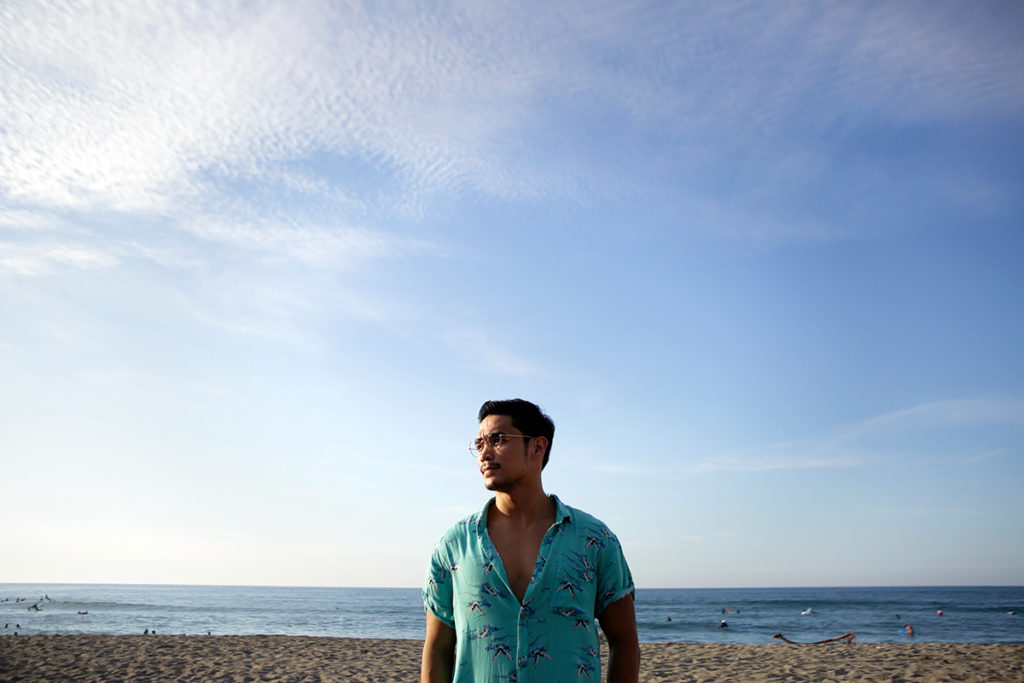What does the next generation of family business leaders look like? In the 2017 study “Same Passion, Different Paths” reported by London-based multinational professional services network PwC, which has been surveying family business leaders for over a decade, there are four key profiles of next generation leaders:
- Stewards focus on protecting the profitability of the family firm and ensuring its long-term sustainability
- Intrapreneurs set up their own venture within the family business, often with family financial backing
- Transformers take on the task of driving significant change in the family firm, with the scope and support to do so
- Entrepreneurs set up their own separate venture outside the family firm, with no profits going back to the family business
And these trends surfacing among millennial entrepreneurs reflect and summarize the freedom that the likes of Iñigo Dulay and JR Francisco are currently carving into their young careers as successors of their respective family firms.
In the blood
Born into a political family and the youngest of four, Dulay traded burpees and handstands for warm sunsets and billowing waves across his family’s Fatwave Surf Resort, a prime beachfront playground that has been operating for nearly five years. Last year, he inherited the resort—after a little prodding from his parents.
“I have to eventually handle the business sooner or later,” he recalls. “It’s better to get involved now so they can help me with the ins and outs and [share their] experiences considering they’ve been in the industry for about 40 years already.”
The shift in leadership is also a pivotal move not only for the family’s legacy in La Union but also for the opinionated Dulay, who now runs the operations on his own terms. While the transfer of power was never acrimonious, his transition hasn’t entirely been orderly; in fact some of his ideas provided rich pickings for his parents.


“My goal is to innovate and help them in the millennial age because that’s what they lack. They’re old school,” he says, revealing that he also had to reduce his regular stints at CrossFit MNL in Bonifacio Global City. This personal change may have caused a rethink on how he intends to make his mark or restructure the business. First on the agenda is putting up a pastry place that serves tarts, then setting up a bar alongside the restaurant, and finally a Flotsam and Jetsam-flavored beach lounge on their recently acquired 111-square meter space up front.
“Even though we have debates, I still need their wisdom. And although I can make decisions on my own, I tell them everything. I want to be transparent. If they overrule, we have to talk,” says Iñigo Dulay about the dynamics between two generations.
“My parents agreed to it but it was a long debate. Remember the old school vs. the new school thing I said? They didn’t see the potential. ‘Bakit maglalagay? Gulo lang yan,’” he says. “It was a really long debate. Months of debate. And then they agreed to give it a try but it’s on me. [If it doesn’t work] I’ll own up to it.”
This illustrates a fine instance of how disruptions should be seen with an objective mentality—putting the business interest first without getting caught up in the emotions of family dynamics. Dulay, however, is quick to point out that these debates are “healthy” and are treated and resolved amicably. “Even though we have debates, I still need their wisdom. And although I can make decisions on my own, I tell them everything. I want to be transparent. If they overrule, we have to talk.”
A plea for professionalism
In Francisco’s case, working with an outside management group was an unexpected family triumph. Aurora Premier Hotel and Resorts, the Franciscos’ corporation established in 1992 and headquartered in Ortigas, is made up primarily of construction, hotel, and timeshare assets that include townhouses, low-cost housing, and the decade-old One Tagaytay Place Hotel Suites.
“Since our core business is construction development, we first got a management group and we worked with them for three years,” says Francisco. “Being a family business setup, you’d always be there and eventually we thought we could do it ourselves.
“That was the time I was invited into the family business. I just graduated in 2005. I worked in a bank for less than a year, and when my father invited me, I said sure,” he says.
The move to work alongside professional management first made good business sense. It allowed him to focus on what was good for the company and ensure long-term sustainability and profitability.
“For two or three years, we were managing it as a family. It was just my father, brother, and I. It was a little confusing for the managers because three of us had different takes on issues,” Francisco says. “Luckily enough, all three of us had distinct styles. My father is the entrepreneur, my brother is the long-term thinker, and I’m more tactical.
Like Dulay, the commanding yet good-natured 35-year-old grew up in a household where business was always the conversation on the dining table. “It’s inevitable,” he says. “We don’t mind. It’s something we immediately embraced.” Dulay and Francisco also share similar storylines: Both are the youngest in the family and both followed a similar career path, working outside to gain experience before taking over the business.
“Back then, I felt like I didn’t really give much input since my father and brother were there. And I can’t really say I was excited [about managing the business], it was more of something I have to do. It was when I was managing the units alone when I started to appreciate it more,” says JR Francisco.
Throughout the four years of succeeding over his father’s incumbency, this De La Salle University economic marketing graduate, with nary a hospitality experience in those days, has developed a keen understanding for driving bold changes with one eye always fixed on protecting the firm, carrying them out as if they were steadfast personal statements.
“Back then, I felt like I didn’t really give much input since my father and brother were there. And I can’t really say I was excited [about managing the business], it was more of something I have to do. It was when I was managing the units alone when I started to appreciate it more.”
One strong impression changed Francisco’s storyline after taking up and deferring his masters in entrepreneurship. “It gave me the framework of how I should be doing things and it changed my mindset to become more strategic.” This was the time when he responded to the market needs to start making major changes in the business, like rebranding in-house restaurant Azalea two years ago to the more contemporary Filipino fare of Amacena.
This year, Francisco sees himself taking on a massive undertaking with a mixed property project in Subic called the Aurora Suites. It’s similar to One Tagaytay Place Hotel Suites only in that the hotel units are fully owned by the operator. But the centerpiece of his 2018 is rebranding the properties under one name at the expense of potentially losing brand recall.
“I’m excited but a little stressed, primarily because it entails a significant amount of capital and investment. It’s also quite crucial how we launch it so we can retain the guests we’ve created relationships with,” he admits. “But we’re looking more at the long-term goals. The plan is to develop more properties under a unified brand.”
Paths to success between generations
Both Dulay and Francisco are examples of entrepreneurs who alternate among the aforementioned approaches to family business successions, which is, as the study found, feasible and encouraged to “open up new ideas and possibilities.” Both of them were never prevented from maximizing the skills they excel at or acknowledging their personal ambitions.
For Dulay, whose trajectory appears to arc into fitness and food with the aforementioned CrossFit box and handcrafted burger joint Buns and Bros, time management is the most crucial factor in running his own ventures without fruitlessly running the resort business downhill. That includes dividing his time between Manila and La Union. “That was the quick question,” he says, “How will I balance this? But, I like doing a lot of things. I borrowed that concept from CrossFit, where you never settle to just jog or lift weights every day.”
It’s refreshing to see how different and similar the challenges and opportunities these next generation leaders face. Hurdling expectations without hindering growth, battling stagnation without acting recklessly, and earning employee trust without dropping objectivity are sometimes born out of trial and error.
A large part of Francisco’s time is also taken up by establishments he has invested in, like bars and convenience stores he originally started that have now become franchises, at his father’s behest. “I don’t know why but I just end up managing things I shouldn’t,” he jests. “My father has been talking to me about it.”
It’s refreshing to see how different and similar the challenges and opportunities these next generation leaders face. Hurdling expectations without hindering growth, battling stagnation without acting recklessly, and earning employee trust without dropping objectivity are sometimes born out of trial and error.
The credibility test is historically a difficult problem to deal with, owing to the complicated nature of people management, but whether esteem was earned throughout years of service or, in Dulay’s case, respecting the visions and goals of the previous generation. The paths and roles these successors take aren’t clear ones, even if the way has been paved for them. The vision for the future may exist, but how to get there—strategic planning, execution, innovation, meeting expectations, maximizing skills—is entirely upon the next generation. That’s when the real leaders emerge.
Originally published in F&B Report Vol. 15 No. 1

